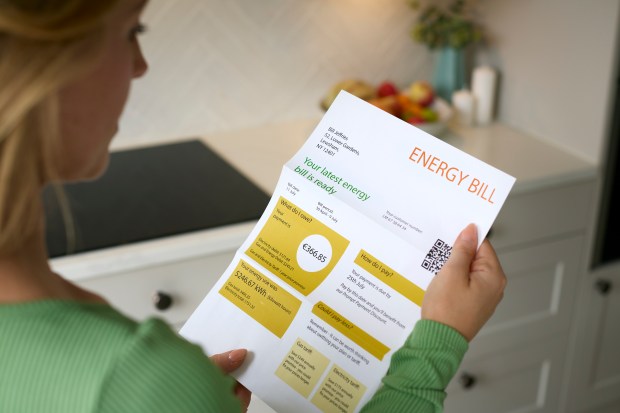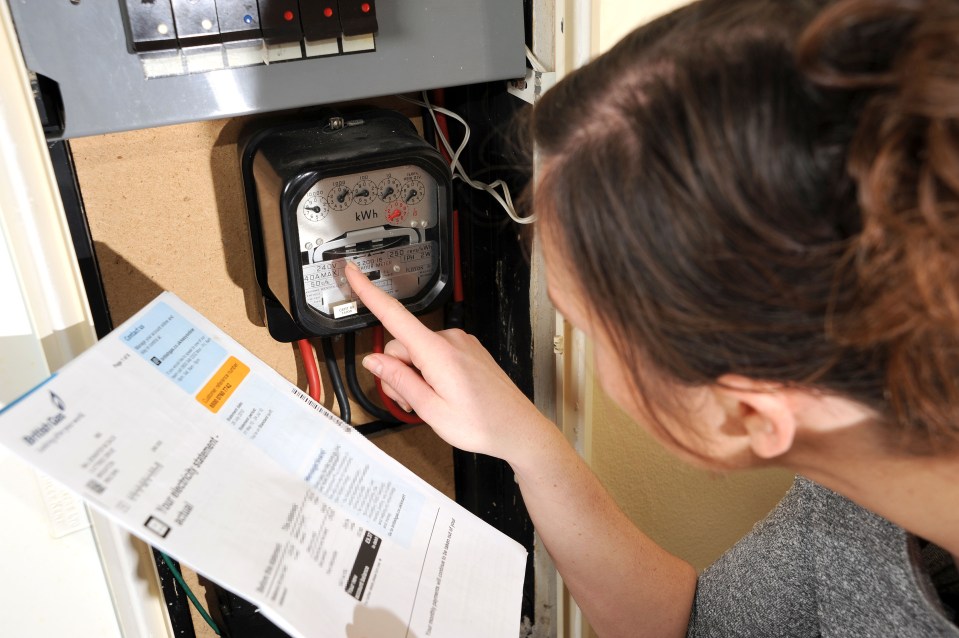HOUSEHOLDS need to take and submit meter readings ahead of bills rising for millions this autumn.
Regulator Ofgem confirmed last month that prices will increase by 2% to £1,755 a year from October 1.
Prices will rise by £35.14 per year for households, having reduced at the beginning of July when the price cap went down.
This will affect 22million households who are on the standard variable tariffs.
Those who don’t take their electricity and gas bill readings as close to October 1 as possible, and are on a standard variable tariff as opposed to a fixed deal, could be faced with higher bills.
Some providers will even give you an extra fortnight to submit your reading, but double-check what applies at yours.
Read more on energy bills
The October rise is 1% higher than industry experts anticipated.
Those on fixed tariffs will not see their bills change from October.
The energy price cap was first introduced in January 2019 and sets a maximum unit price that energy suppliers can charge households.
Despite the price cap increasing in October, experts estimate that it will be reduced at the next three-month change in January.
This will depend on geopolitical movements, weather patterns, and any changes in government policy.
Experts also warned that any reduction in prices would be minimal for the foreseeable future.
How to take a reading
The easiest way to take a reading is by taking a photo of your gas and electricity meters.
This means you have evidence in case you need to dispute.
You can send in your meter reading online via your energy account.
Some providers will also let you send in the numbers by text or through their app.
If you have a electricity meter then you will see a row of six numbers.
Five of them will be black and one in red.
Write down the five numbers in black, which are shown from left to right.
If you have a traditional dial meter then you need to read the first five dials from left to right.
If the pointer is between the two numbers then write down the lowest figure.
If it is between nine and zero then write down the number nine.
For gas meters you need to write down the first five numbers that are shown before the decimal point.
Digital imperial meters are four black numbers and two red numbers.
And for smart meters then you do not need to send your supplier a meter reading, it will be sent automatically.
Help available
If you struggle with your energy bills there are several ways that you can get help.
The Winter Fuel Payment offers £300 to pensioners to help cover the cost of heating during the winter months.
Struggling families can also get access to money for their energy bills through the Household Support Fund (HSF).
Each council was allocated a slice of the £742million fund earmarked for extra support.
Additionally, millions will receive the Warm Home Discount, which is worth £150.
This discount is means-tested and given to households on a low income or claiming benefits such as Universal Credit.
British Gas also announced a £140million support package to help customers facing financial hardship.
What energy bill help is available?

There’s a number of different ways to get help paying your energy bills if you’re struggling to get by.
If you fall into debt, you can always approach your supplier to see if they can put you on a repayment plan before putting you on a prepayment meter.
This involves paying off what you owe in instalments over a set period.
If your supplier offers you a repayment plan you don’t think you can afford, speak to them again to see if you can negotiate a better deal.
Several energy firms have schemes available to customers struggling to cover their bills.
But eligibility criteria vary depending on the supplier and the amount you can get depends on your financial circumstances.
For example, British Gas or Scottish Gas customers struggling to pay their energy bills can get grants worth up to £2,000.
British Gas also offers help via its British Gas Energy Trust and Individuals Family Fund.
You don’t need to be a British Gas customer to apply for the second fund.
EDF, E.ON, Octopus Energy and Scottish Power all offer grants to struggling customers too.
Thousands of vulnerable households are missing out on extra help and protections by not signing up to the Priority Services Register (PSR).
The service helps support vulnerable households, such as those who are elderly or ill.
Some of the perks include being given advance warning of blackouts, free gas safety checks and extra support if you’re struggling.
Get in touch with your energy firm to see if you can apply.
